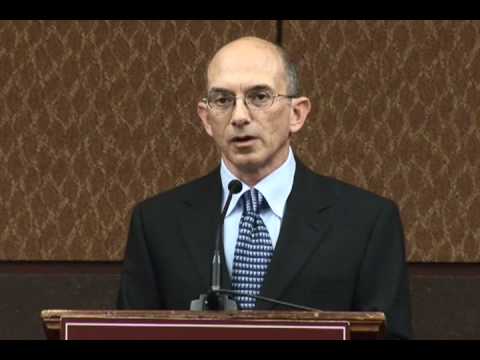Arnold Kling has a nice quote about the relative importance of cultural over institutional factors. If for some reason the US Government stopped working overnight, the American people would not be plunged into chaos. We have a culture which would permit us to voluntarily organize much of what we need to do. As Mr. Kling put it:
[T]he cultural margin is more important than the institutional margin. … [T]here are no societies in which anarchy will work well but government would work poorly, or vice-versa. Instead, on the one hand there are well-developed cultures, which could have good government or good anarchy, while on the other hand there are poorly-developed cultures, which could have only bad government or bad anarchy.
If you are not currently making a daily visit to Arnold Kling’s blog Askblog you must begin doing so.
Note also, Arnold Kling’s review of America 3.0, entitled America’s Past and America’s Future.
He concludes:
The vision that Bennett and Lotus put forth is not the technocratically-run national system that most contemporary politicians and pundits presume is ideal. Nor is it the philosophically-driven rights-based society that libertarians might prefer. However, if the authors are correct in their cultural anthropology, then their idea of America 3.0 is what fits best with our culture.
This is a nice summary of the future we hope to see in America.

I stopped reading Kling when he started censoring comments. I did the same with Broad DeLarge. It would seem that economists can’t take criticism, whichever faction they belong to.
As Sgt Mom will know, in Britain a “brad” is a tool.
Arnold Kling is an excellent thinker. Blog comments are not terribly important, and he is committed to civility, which is a rarity in blog comments. Permitting comments at all is something that is often not worth doing, if a blog gets enough traffic and the inevitable Gresham’s Law of bad commenters takes effect.
There are some politicians that want you believe without them & govt, chaos would reign.
I’ve written comments at Kling’s blog critical of some of his positions, and he hasn’t censored them. I think he censors himself on certain subjects to avoid offending his mostly libertarian and leftists readership. As his views on the importance of culture show, Kling is not a shallow economistic ideologue, as most self-described libertarians are.
Culture is an epi-phenomena. Whar is called culture is probably mostly the result of genetic factors.
So if I visit two companies in the same industry with radically different cultures, I should assume that the difference must be due to genetic factors?
Culture reflects genetics. East Asians have the culture they have because of their average genetic make-up which is very different from say the genetics of the Congolese.
Couldn’t I as easily argue that they have the genetics they do because of their different culture?